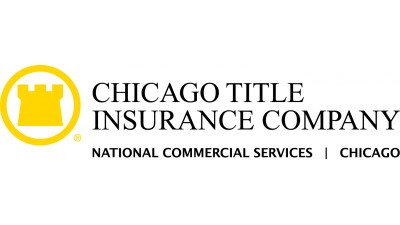Q&A: Tackling UCC Policy With Chicago Title's Gary Zimmerman
UCC insurance policies—a relatively new concept—protect security interests within personal property, and are used for transactions subject to Article 9 of the UCC (Uniform Commercial Code). Gary Zimmerman of Chicago Title's Fidelity National chatted with us about UCC policy and how it's shifting risk to title companies.

Bisnow: Can you trace the evolution of UCC policy in the past 10 years? What has Fidelity’s role been in this world, and how has UCCPlus shaped your firm’s future?
Gary Zimmerman: Real estate attorneys who use real estate title insurance have utilized our UCCPlus policies for their clients. The UCCPlus policies provide lenders and purchasers with a new type of title insurance coverage, which provides protection for loans secured by personal property and for purchases of limited liability companies, limited partnerships and corporations.
In the past 10 years it has become increasingly common for real estate attorneys to recommend use of these policies to their clients to protect their collateral. UCCPlus is becoming indispensable, and our volume today is three to four times greater than what it was a decade ago.
But if you’re not a real estate attorney, chances are you are not fully familiar with the benefits of obtaining title insurance. Commercial finance attorneys, for example, don’t use title insurance much at all. So it’s our job, in the next 10 years, to expand use of UCC policies to the commercial finance attorneys and their lenders and purchasers, who know little about its coverages or value.
Bisnow: All major land-title insurance firms now offer some form of UCC insurance, but with several differences. What are some of those differences, and can you point to specific aspects that set UCCPlus’s policies apart from other types of UCC policies?
Gary: Essentially, the policies are very, very similar; however, there are a few significant differences. But since the ways that our UCCPlus policies are different and better than our competitors is a bit technical, there would not be enough space to set out a thorough explanation. Instead, we invite any users of UCC Insurance to examine different companies' UCC polices for themselves and contact each title insurer for an explanation. We can provide a full explanation of the benefits of UCCPlus policies to anyone who is interested.
Bisnow: On that note, do you see the variation in UCC policies across the board as a good thing or a bad thing? Is synchronizing UCC policies a potential goal for title insurers to aim for over the next 10 to 20 years?
Gary: Variation is good, as competition in the marketplace is always good for the customer.
Bisnow: You’ve mentioned in previous interviews that lenders who use search-and-filing companies agree "in the fine print" to limit their recourse against the search company to the cost of search or filing, and that “UCC insurance, in part, was a response to this gap in coverage for lenders.” Would eliminating that fine print eliminate the need for UCC insurance for clients who use search-and-filing companies?
Gary: No, not at all. The coverage provided in a UCCPlus Insurance Policy far exceeds a simple search. It is true that if you settle for just a UCC search, the search comes back clear and after the lender closes its new loan, it finds out there was another security interest or lien that the search company’s report failed to capture, they are not going to be liable for any loss the lender will suffer. They will however gladly refund the money that the lender spent conducting the search.
The increased value of UCC Insurance stems from the coverages under the UCCPlus Policy that go far beyond a simple UCC search and from selectively hired, experienced attorney and paralegal underwriters who make sure that we've understood the risk that we are undertaking in any transaction.
We do take search and filing risk. When we get a search that's wrong, and rely on that search and issue a policy insuring the lender that there are no prior liens, claims or encumbrances—if the lender suffers a loss under the policy as a result, we will have to pay the lender for such loss.
That's one of the reasons why UCC Insurance is valuable, because you are shifting much of the risk in the transaction to the title company—the same role the title insurance company on the real estate side has been doing for many years.
To learn more about Bisnow partner Chicago Title Insurance, click here.

